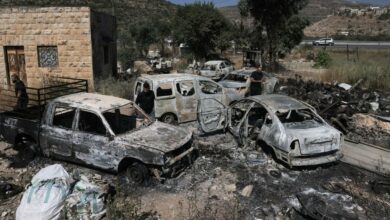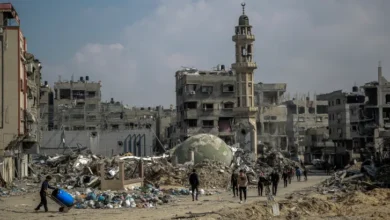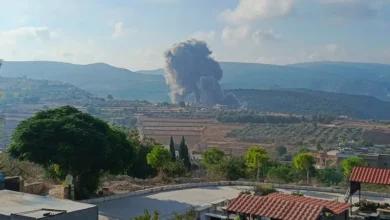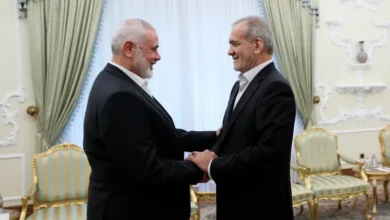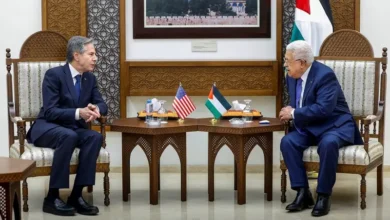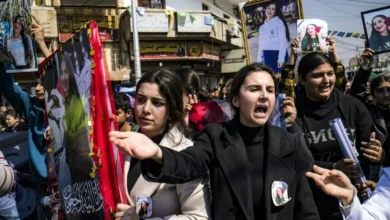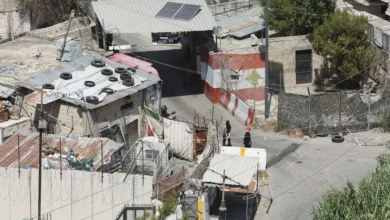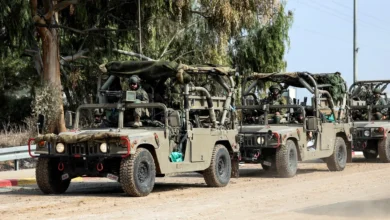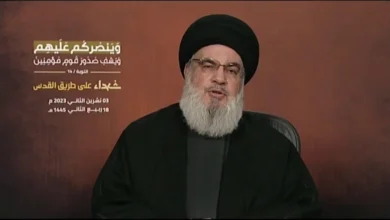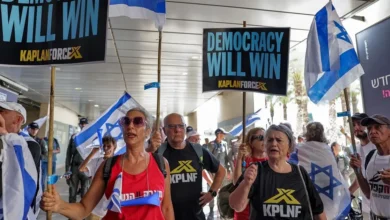Impact of war trumps effect of climate crisis for some Palestinians at COP28 in Dubai
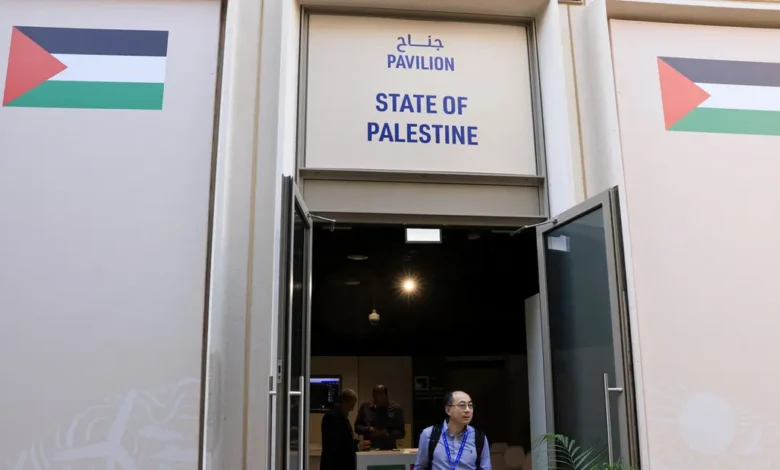
A long-term threat to human life like climate change loses relevance in a situation where people are being killed in the ongoing war in Gaza, an official at the ‘State of Palestine’ pavilion said on the sidelines of the COP28 climate conference.
“We cannot speak about the climate change within our situation now,” Palestine’s lead contact point with the UNFCCC Ahmed Abuthaher said, at the ‘State of Palestine’ pavilion, a first-ever at the UN climate conference.
According to Abuthaher, the pavilion is helping raise awareness on the most urgent issue for Palestinians – the Israeli war against the militant group Hamas, which has left over 17,000 people dead in Gaza, mostly children. The fighting has also displaced about 90 percent of Gaza’s 2.3 million residents.
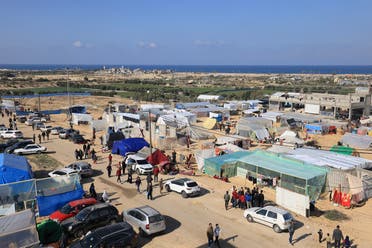
While the two sides have fought numerous wars over territory and smaller attacks in the decades leading up to 2023, the conflict escalated on October 7 after Hamas militants killed 1,200 people within Israeli territory and took over 200 hostages back to Gaza, some of whom have been released since Israel’s onslaught.
The Israelis responded to Hamas’ storming by launching a full-scale invasion into the Palestinian territory. But the conflict between the two has lingered since Israel’s establishment as a state in 1948, with both sides placing a claim on the same strip of land along the Mediterranean Sea.
It has made the conflict one of the longest-continuous wars, with usually disproportionate casualties on the Palestinian side, according to multiple reports.
Abuthaher, who is the Director of Projects and International Relations at the Environment Quality Authority in the territories, said that if the war in Gaza happened anywhere else, the international response would be “very different” than the current reality for many in Gaza, the West Bank and East Jerusalem.
“For whom I want to see the climate change – for the people. But in my country, the people are… the children, the women, the elderly people, all killed. Who will I save [the planet] for,” he asked rhetorically.
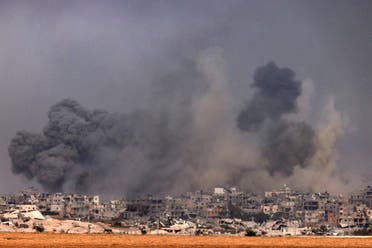
The sparsely manned pavilion is strikingly different from many other country pavilions with a stacked profile of events, meetings, and hope.
Only a small percentage of delegates who were supposed to represent the pavilion were able to travel to Dubai.
“The international community is seeing every day, every hour, every second from the TVs, the bombardment of our building and killing our people. But there is no real action,” Abuthaher said.
“Our right to live is one of the key messages. Please don’t treat the people, the children in Gaza, West Bank or East Jerusalem different than a child in London or a child in the USA. They are simply human beings. They have the right to live. They have the right to play. They have the right to have food, to have water, to have health care,” he added.
War is among the leading contributors to climate change. The United Nations Framework Convention on Climate Change (UNFCCC) has said in earlier reports that the inverse is also true – climate change can contribute to increased conflict indirectly, with displacement of a country’s population among the larger concerns.
Pro-Palestinian protests at COP28
The Israel-Hamas war has thrown a veil over the climate conference with numerous protests in the Blue Zone – an area managed by the United Nations for meetings and negotiations and governed by UN law, thereby allowing demonstrations with prior permission.

The Green Zone at COP28 is governed by UAE law. The Gulf state, like most GCC nations, does not allow demonstrations or protests.
Various attendees were seen wearing lanyards depicting the colors of the Palestinian flag and the words ‘solidarity’ written across them. Some have been wearing the Palestinian ‘keffiyeh’ scarf in support.
Ahead of the event, COP28 organizers and the UN secretariat had signed a bilateral deal outlining the legal basis for holding protests at COP28 in Dubai. They said, “there will be space available for climate activists to assemble peacefully and make their voices heard.”
One of the largest demonstrations since the start of COP28 was held on Saturday, calling for a ceasefire. The two-hours-long march moved through the Blue Zone peacefully and in the presence of UN security officials.

Al Arabiya English spoke to a few activists from an earlier sit-down protest who hoped to raise awareness of the effects of the war and pressure visiting delegates to take notice.
While the effects of the war are overwhelmingly acute, the role of climate change in impacting the health, agriculture, and water systems in the territories remain. Children are most at risk, according to a 2023 UNICEF report.
